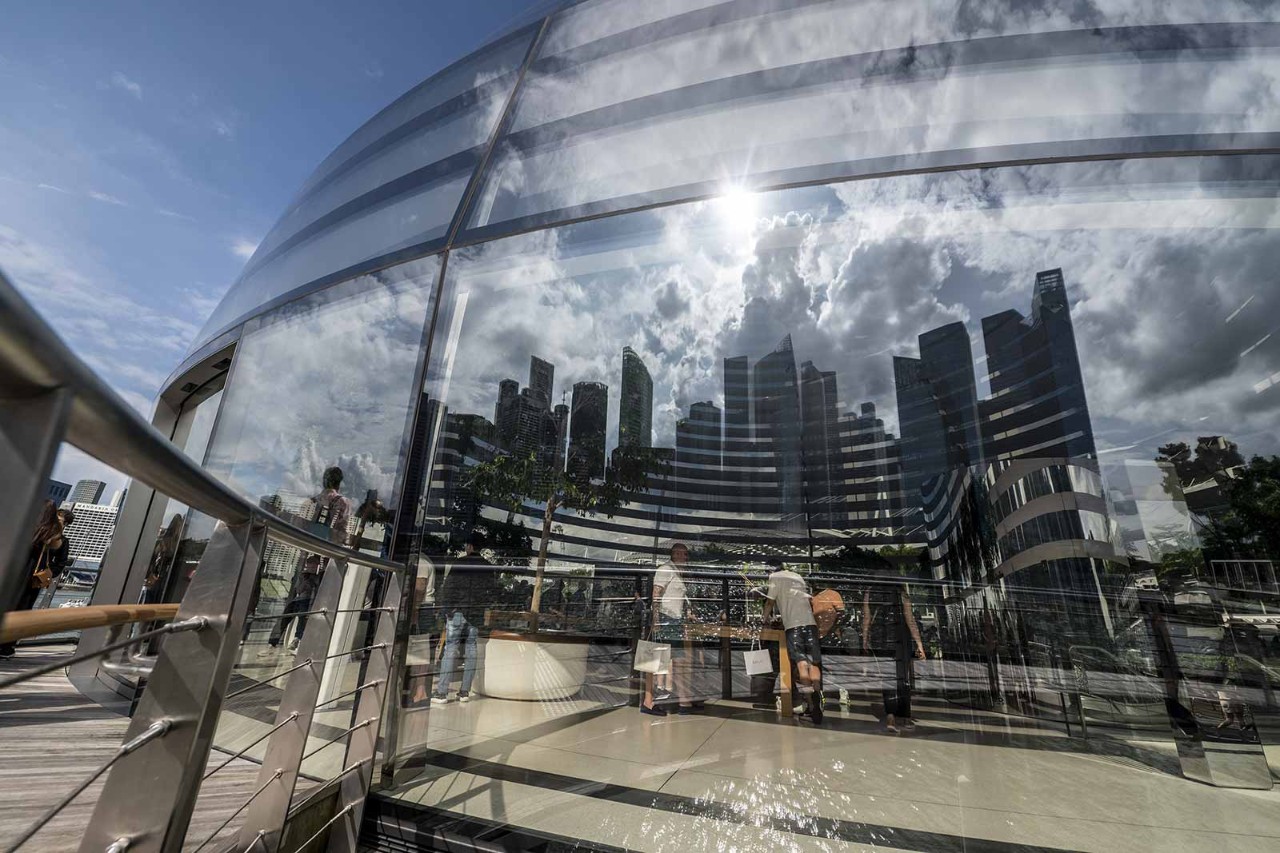
Singapore’s Budget this year fell on Valentine’s Day, which led to many commentators asking to whom the government would be spreading the love.
In fact, the finance minister, Lawrence Wong, revealed a long list of beneficiaries for government assistance – from first-time home buyers to seniors, and from parents-to-be to those with disabilities. On the corporate front, small and medium-sized enterprises, which make up a huge part of Singapore’s economy, were also shown some affection.
This year there was plenty of talk about making the city-state more resilient
On the flipside, the wealthy were landed with higher taxes on high-end properties and luxury cars, along with an increase in tobacco duty, as part of wider measures to introduce more wealth taxes. Singapore’s Budgets tend to be comprehensive and long affairs, and this year’s was no different.
Upskilling the local workforce, tweaking the property market and helping the most vulnerable are mainstays of most Singapore Budgets. This year there was also plenty of talk about making the city-state more resilient.
Pandemic protection
The government was very generous to businesses during the Covid-19 pandemic, calling on its massive cash reserves to support them. For the 2023 financial year, the government is expecting a slight deficit of S$400m (US$298m), or 0.1% of the country’s GDP, compared with the 2022 deficit of S$2bn.
During the past three years, the government has dipped into its reserves to smooth out local disruptions. This year, as things return to a more normal state, it will not be doing the same.
Instead, the focus has turned to increasing revenues from taxes, starting with personal tax. The government introduced two new marginal personal income rates of 23% and 24% in Budget 2022, which will kick in next year, so no-one was expecting any further increase on this front. Singapore has to be careful not to lose its global competitiveness by raising tax rates too much.
Corporate tax
For corporate tax, a global minimum effective tax rate of 15% will be introduced for large Singapore multinational enterprises (MNEs) on or after 1 January 2025, amid a broader international move to ensure a more transparent tax environment.
These changes fall under the Base Erosion and Profit Shifting (BEPS 2.0) initiative, a global framework for the reform of international tax rules. The minimum effective tax rate of 15% for affected MNEs falls under Pillar 2 of the BEPS framework, and Singapore has now set a timeline for its implementation.
However, many other jurisdictions have not announced their implementation plans. Singapore has said it will monitor international developments and “adjust” its timeline if there are additional delays in implementing the global agreement.
Top-up tax
Although Singapore currently has a headline corporate tax rate of 17%, many companies enjoy exemptions and are taxed at significantly lower effective rates. As part of the broader international move, Singapore has agreed to implement a ‘domestic top-up tax’ to bring its effective corporate tax rate to the 15% level. While aligning Singapore to its global peers, the move is also expected to boost tax revenue.
The other objective of BEPS is to reallocate the profits of the largest and most profitable MNEs to where customers are actually located. These changes mean that MNEs operating in Singapore will be subject to the new tax rate. Singapore is a regional headquarters and major Asian hub, and many large and well-known multinationals will therefore be affected.
What this Budget shows is just how keen Singapore is to align its tax regimes with the world’s major economies and to stand shoulder to shoulder with them.





